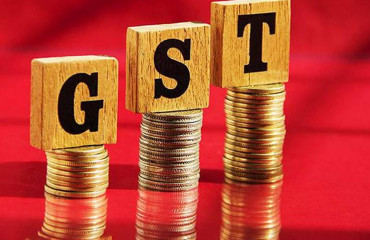
New Delhi: India’s fledgling space economy, valued at around $8 billion by the Department of Space as of December last year, is seeking budget allocations to boost creation of domestic demand and capacity—for the private sector to help quadruple India’s global space economy share to 8%. This, industry stakeholders said, will be key to India’s space economy growing more than 5x in the next eight years, in order to reach a projected domestic space sector value of $44 billion by 2033.
New Delhi: India's fledgling space economy, valued at around $8 billion by the Department of Space as of December last year, is seeking budget allocations to boost creation of domestic demand and capacity—for the private sector to help quadruple India's global space economy share to 8%. This, industry stakeholders said, will be key to India's space economy growing more than 5x in the next eight years, in order to reach a projected domestic space sector value of $44 billion by 2033.
On 26 June, in an interview with Mint, Pawan Kumar Goenka, chairman of Centre-affiliated space activity body Indian National Space Promotion and Authorization Centre (In-Space), said that the body has, as per the norm with government agencies, submitted its demand from the industry with the finance ministry.
Read | Satellite operator SES looks to set up India arm; costs for DTH players may fall
While In-Space or Goenka did not comment on what demands have been put forth, industry stakeholders said that the upcoming Union Budget is likely to include "strategic incentives that boost domestic demand generation—including funds to incubate new ventures, and direct government agencies to be customers to the industry," a senior government official with direct knowledge of the matter said.
Building scale for the private space sector, industry veterans said, could be key. "We hope to see PLI incentives for key components, lower GST rates, tax holidays for space startups, lower rates for import duties of key components, and low-rate financial loans that will enable funds to support space ventures," said Anil Kumar Bhatt, director general of industry body Indian Space Association (ISpA). While the FDI has been a big boost, internal support will go a long way to boost the sector, he added.
Pawan Kumar Chandana, chief executive of domestic space startup Skyroot Aerospace, said, "It would have a great impact if the budget allocated for In-Space were multiple times what it was, as it can benefit hundreds of startups."
The body counts the likes of Larsen & Toubro, Bharti Airtel, Bharat Forge, Godrej & Boyce and Hindustan Aeronautics Ltd, among others, as its members.
Beyond boosting development of technology for the space sector—typically regarded as one that's heavy in capital expenditure, Bhatt said boosting funds for early-stage ventures will also be imperative. "In-Space has already made a technical centre, and they have also begun offering seed funds in the agriculture sector. They are now looking to expand such funds to other sectors too—this will bring the impetus to generate demand in the space industry," he said.
Chaitanya Giri, space consultant and associate professor, space studies at Flame University, Pune, further added that key additions to the Budget will include setting up the industry for global compliance and participation. "Most of our budgetary asks for the space sector would be to set-up new common facilities for R&D and testing in more geographies beyond Ahmedabad and Bengaluru, via In-Space. A second demand would be for tax holidays, manufacturing incentives, and defence contracts from government agencies," he said.
Mint Primer: Will you get your internet directly from satellites?
Speaking about demand generation within the Centre, Giri said that the Budget could lay down clarity on this subject, too. "A lot of downstream geospatial utilities could be offered by the space sector, which the Centre can enable. There could be allocations for more Innovations for Defence Excellence (iDex) programmes, which may contribute to the Centre becoming the anchor customer for the sector," he said.
On 26 June, S. Somanath, chairman of Indian Space Research Organisation (Isro), said at a roundtable that there is considerable room to build demand for the private space sector from within government agencies. Industry stakeholders believe that this is thus likely to feature as part of the upcoming Budget.
However, others underlined caution, adding that blanket incentives are not necessary for the sector. "India already has the talent in launch vehicle manufacturing, satellite manufacturing, and in orbit maintenance. This can make India a credible global offering not just for Nasa or the European Union, but every geography. This would need a larger push—if we approach policy and budget incentives, we should look at it with a nationalistic vision," said Vishesh Rajaram, managing partner at venture capital firm, Speciale Invest.
Adding that any incentive towards capacity building "should come as soon as possible," Rajaram further added that strategic allocation of funds could be key. "Satellite manufacturing does not need a push via budget incentives—this just needs to now target global clients. The recent deal to launch a satellite for Australia is one such proof. This is achievable in the near future. What we now need to do is boost areas of the industry through which we can target global markets," he said.
Also read | Indian citizen astronaut to fly to space in upcoming mission, you can apply too
The senior government official cited above further added that most budget demands from the private sector's key promotion bodies are centred around building India's services to cater to global markets—which is likely to underline announcements for the space sector in the Budget on 23 July.
"The allocations may not be big, given that this is the first Budget of a coalition government. But, they will be strategically key for us to start targeting global markets—only then will we reach our valuation goals that have been floated so far," the official further added.
